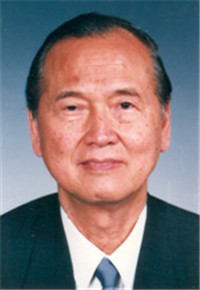Welcome to the IKCEST
 Sign up
Sign in
Notification
Sign up
Sign in
Notification
English
 English
English
 中文
中文
 русск
русск
 français
français
 español
español
 العربية
العربية
Old Version
Old Version
English
中文
русск
français
español
العربية
Language
We detect your regional language is French. Do you want to change site's language to French? You may choose other languages.International
 English
English
 中文
中文
 русск
русск
 français
français
 español
español
 العربية
العربية
No
Change
Mobile
Scan this QR code on your phone to browse IKCEST

Become author
- Home
- Symposiums
- The 5th GIS Software Technology Conference
- Webinar on Society 5.0
- The 2022 Newmark Distinguished Lecture
- IKCEST International Symposium 2019
- IKCEST International Symposium 2018
- IKCEST International Symposium 2017
- IKCEST International Symposium 2016
- IKCEST International Symposium 2015
- China-Ukraine Workshop on Resources Classification: Status, Mapping and Application
- UNESCO Science Centres Coordination Meeting
- All Symposium
- Training Workshops
- The 2019 International Workshop of IKCEST Intelligent City Knowledge Service held in Shanghai
- International Training Workshop on Disaster Risk Reduction Knowledge Service in China-Pakistan Economic Corridor
- IKCEST and ISTIC jointly held the Online Training Workshop on Big Data
- TRAINING OF TRAINERS on Data Stewardship for Open Science 2021
- IKCEST-DRR Team Successfully Held the International Training Workshop
- International Training Workshop on Big Data for Developing Countries 2019
- The International Training on Resource & Environment Scientific Data Sharing along the “Belt and Road”
- IKCEST - ISTIC 2018 Big Data Training Workshop
- 2019 IKCEST & ICEE International Engineering Education Training Workshop held successfully at Tsinghua University
- The International Training Workshop on Resource & Environment Scientific Data Sharing and Disaster Risk Reduction Knowledge Service
- All Training Workshops
- Competitions
- Datasets
- Knowledge Apps
- Knowledge Services
- Videos
- Newsletters
- About IKCEST
IKCEST

Zhen Yongsu
Affiliation:
Subject:
Introduction: Zhen Yongsu is a professor and chairman of the Department of Oncology, Institute of Medicinal Biotechnology of the Chinese Academy of Medical Sciences and Peking Union Medical College. He is one of the pioneers in the research on and development of antitumor drugs, especially antitumor antibiotics, in China. He has developed new models and assays for screening of antitumor drugs. As a principal investigator, he has studied and developed a series of antitumor antibiotics, including zhengguangmycin, guanghuimycin, pingyangmycin, boanmycin, and lidamycin. Among them, pingyangmycin has been widely used in clinical cancer chemotherapy in China over 26 years and listed as national essential drug. He demonstrated for the first time in China that a nucleoside transport inhibitor can be used to enhance the efficacy of antitumor drugs and pointed out that nucleoside transport can serve as a target for cancer chemotherapy. His published paper on this topic has been widely cited. Based on the study of nucleoside transport inhibitors, he has found several antitumor biochemical modulators of natural origin. In the field of biotechnology medicines, he has prepared several monoclonal antibody immunoconjugates and fusion proteins for cancer. In particular, he has made new progress in molecule downsizing of antibody-based conjugates and fusion proteins. He has published over 200 scientific articles. As chief editor, he has published three professional books, i.e., Antibody Engineering Drugs, TEA: Bioactivity and Therapeutic Potential (in English), and Antitumor Drug Research and Development. He won the second prize of the National Invention Award for the study of pingyangmycin and the Scientific Achievement Award at the National Science Congress for the study of zhengguangmycin. In addition, he won three prizes of the Science and Technology Advancement by the ministry, and the title of the National Scientist with Distinguished Contributions in 1986. He won Ho-Leung-Ho-Lee Prize for Science and Technology Advancement in 2001.
Subject:
Introduction: Zhen Yongsu is a professor and chairman of the Department of Oncology, Institute of Medicinal Biotechnology of the Chinese Academy of Medical Sciences and Peking Union Medical College. He is one of the pioneers in the research on and development of antitumor drugs, especially antitumor antibiotics, in China. He has developed new models and assays for screening of antitumor drugs. As a principal investigator, he has studied and developed a series of antitumor antibiotics, including zhengguangmycin, guanghuimycin, pingyangmycin, boanmycin, and lidamycin. Among them, pingyangmycin has been widely used in clinical cancer chemotherapy in China over 26 years and listed as national essential drug. He demonstrated for the first time in China that a nucleoside transport inhibitor can be used to enhance the efficacy of antitumor drugs and pointed out that nucleoside transport can serve as a target for cancer chemotherapy. His published paper on this topic has been widely cited. Based on the study of nucleoside transport inhibitors, he has found several antitumor biochemical modulators of natural origin. In the field of biotechnology medicines, he has prepared several monoclonal antibody immunoconjugates and fusion proteins for cancer. In particular, he has made new progress in molecule downsizing of antibody-based conjugates and fusion proteins. He has published over 200 scientific articles. As chief editor, he has published three professional books, i.e., Antibody Engineering Drugs, TEA: Bioactivity and Therapeutic Potential (in English), and Antitumor Drug Research and Development. He won the second prize of the National Invention Award for the study of pingyangmycin and the Scientific Achievement Award at the National Science Congress for the study of zhengguangmycin. In addition, he won three prizes of the Science and Technology Advancement by the ministry, and the title of the National Scientist with Distinguished Contributions in 1986. He won Ho-Leung-Ho-Lee Prize for Science and Technology Advancement in 2001.

 User Center
User Center My Training Class
My Training Class Feedback
Feedback




